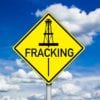Texas leads the nation in hydraulic fracturing and is a hub for big oil companies. This growing industry has created thousands of local jobs, but there’s no question that these opportunities come with serious health and safety hazards. Unfortunately, oilfield and fracking workers are at risk of injury and death every day.
Examples of Oilfield and Fracking Risks
 Working in the oil and gas industry is statistically dangerous. According to OSHA, 489 oil and gas extraction workers were killed on the job between 2013 and 2017. Numerous others have experienced serious, often life-changing injuries as a result of workplace accidents. Not only is the work fast-paced, but the industry’s struggle to keep up with demand has fostered unsafe practices and conditions.
Working in the oil and gas industry is statistically dangerous. According to OSHA, 489 oil and gas extraction workers were killed on the job between 2013 and 2017. Numerous others have experienced serious, often life-changing injuries as a result of workplace accidents. Not only is the work fast-paced, but the industry’s struggle to keep up with demand has fostered unsafe practices and conditions.
Some of the most common oilfield and fracking accidents include:
- Transportation accidents: Many oil and gas workers are oilfield truckers. Highway vehicle crashes are the leading cause of fatalities for those in this field. Areas with heavy oilfield traffic can increase the risk of an accident. Other dangerous factors may also be at play, including when oil companies push schedules known to contribute to driver fatigue.
- Fires and explosions: Flammable gasses are common at oilfields and fracking sites. Sources include wells, trucks, production equipment, and surface equipment. Workers face the risk of fires and explosions due to ignition of these vapors. Ignition can be caused by a number of sources that must be recognized and controlled to ensure worker safety, including static, cigarettes, and welding tools.
- Exposure to harmful substances: Hundreds of substances are involved in the fracking process, many of which are harmful or potentially harmful. Benzyne, silica, hydrocarbon gases, and naturally occurring radioactive material appear on the list of known hazards. Exposure to these substances can cause health issues, including chemical burns and problems related to the inhalation of toxic vapors. Along with taking measures to reduce potential worker overexposure, employers must provide labels, safety data sheets, and proper training.
- Equipment accidents: Workers may be struck by, caught in, or caught in between equipment at a fracking site. Unfortunately, accidents involving equipment are common and account for three out of five fatalities on well sites. Hazards include moving or falling heavy equipment, as well as the risks involved with working around high-pressure lines.
Obtaining Compensation After a Fracking Accident
While fracking comes with risks, workers and contractors are still entitled to safe working environments. Yet all too often, oil and gas companies put profits before their employees. If you or a loved one suffered an injury in an oilfield accident, you deserve compensation.
Your fracking accident injuries may be covered under worker’s compensation. In situations where a third party’s negligent actions contributed to your injury, you may also have the right to file a personal injury lawsuit to obtain compensation for things such as medical bills and diminished quality of life.
If your loved one was killed in a fracking accident, suing for wrongful death may be an option. Our experienced personal injury lawyers can help determine which course of action is best for your unique situation.
Contact our Austin Personal Injury Lawyers
If you or a loved one were injured in a fracking accident, rely on Shaw Cowart LLP to stand up for your rights and obtain the full compensation you deserve. Contact our personal injury attorneys at 512-499-8900 to schedule a complimentary consultation. We serve Austin and nearby areas of Texas.
